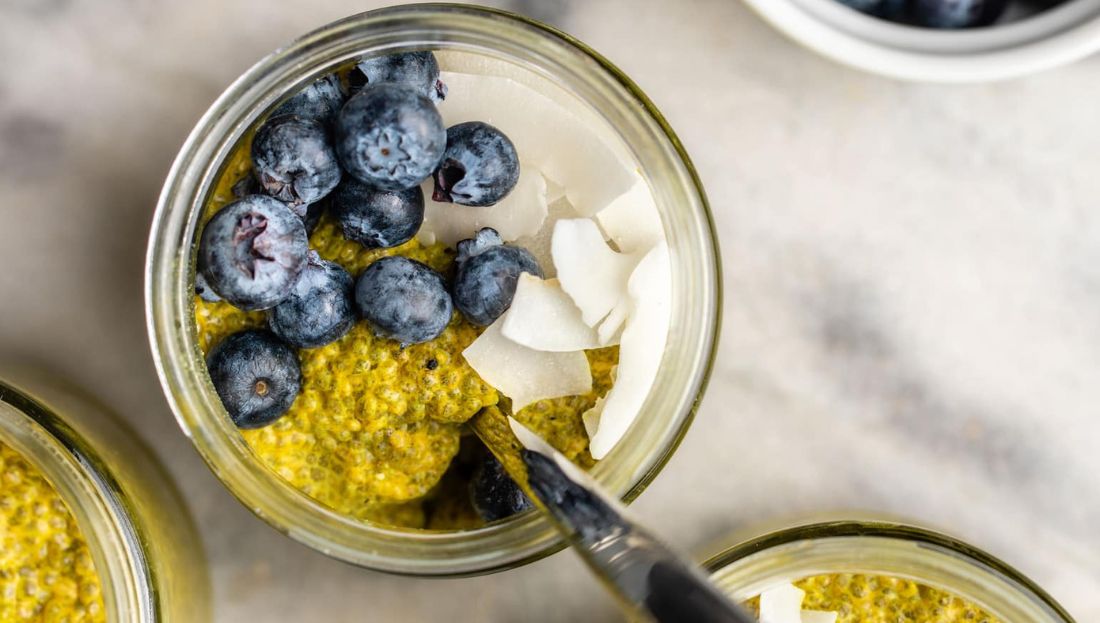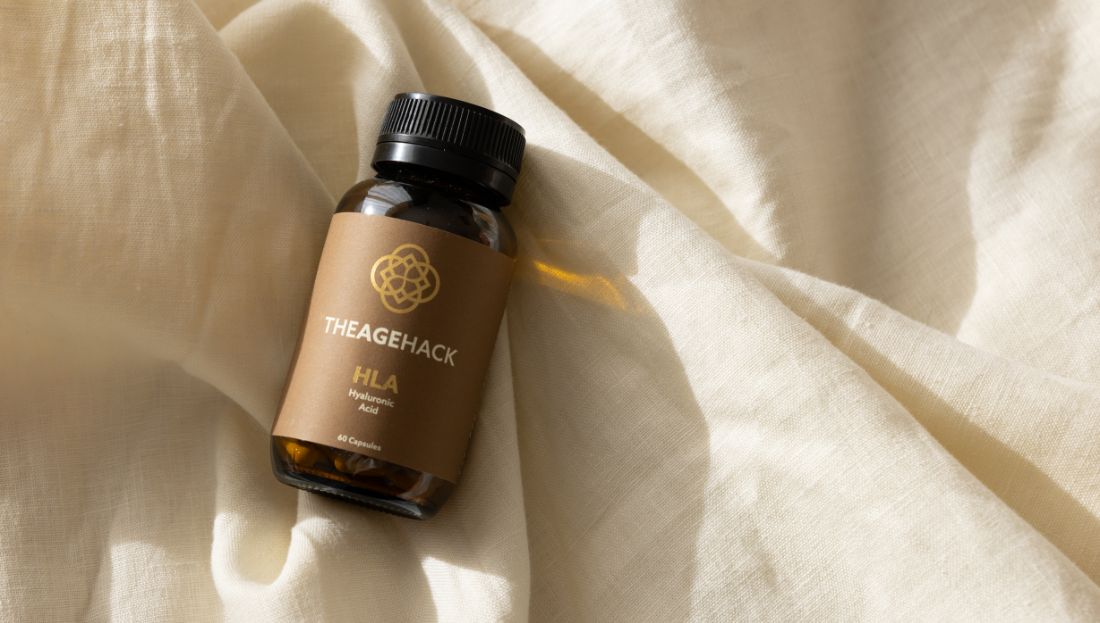Marine Collagen For Wrinkle Prevention: A Hero, Or Just Hype?
As we age, our skin naturally loses some of its firmness and elasticity, leading to the formation of wrinkles. While this process is a normal part of ageing, many seek ways to maintain youthful skin. One supplement that has gained popularity in recent years is marine collagen.
But does it live up to its popularity? Modern scientists seem to think so. Never mind the influx of supplements containing marine collagen in the retail world; there are supportive studies, too. A science-first approach for skin supplements works powerfully and synergistically to address skin-ageing concerns on a cellular level.
Let's explore marine collagen, how it affects our skin, and whether it can help prevent wrinkles. This innovative compound can deliver a visibly healthier, youthful-looking complexion (thicker hair and stronger nails are also secondary benefits).
What Is Marine Collagen?
Marine collagen is a type of protein derived from the skin, scales, and bones of fish, particularly cold-water species like cod and salmon. Unlike other collagen sources, marine collagen is predominantly Type I collagen. This is the most abundant collagen type in the human body and a major component of the skin's dermal layer. It accounts for over 90% of the collagen in the body and is crucial for the structure of skin, bones, tendons, and other connective tissues.
To make it more bioavailable, marine collagen is often hydrolysed into smaller peptides, making it easier for the body to absorb and use. This makes Marine collagen powder a fine powder that blends seamlessly into water and other beverages.
How Do Wrinkles Form?
Wrinkles are lines, folds, or creases that form in the skin primarily as a result of the natural ageing process. They occur when the skin loses its elasticity and firmness, leading to sagging and the formation of permanent grooves. The first signs often appear where facial expressions are most obvious, such as around the eyes, mouth, and forehead.
Several key factors contribute to wrinkle formation:
- Decreased Collagen Production: As we age, our bodies produce less collagen, leading to weaker skin structure. This decline is a natural part of the ageing process, but lifestyle factors can accelerate it.
- Excess Sun Exposure: Ultraviolet (UV) rays break down collagen fibres in the skin, accelerating the ageing process. Both UVA and UVB rays can lead to weakened proteins, causing them to break down faster.
- Smoking: Chemicals in cigarette smoke damage collagen and elastin, leading to premature wrinkles. Cigarettes contain over 7,000 chemicals, many of which are harmful and toxic, and some of which are carcinogenic. These include nicotine, carbon monoxide, tar, and various other chemicals like benzene, arsenic, and formaldehyde.
- Repetitive Facial Movements: Frequent expressions like squinting or smiling can lead to fine lines over time. As ageing skin loses its elasticity and the grooves from repeated muscle contractions become more noticeable, this forms dynamic wrinkles. These are the lines that appear when the face is moving, like frown lines, crow's feet, or laugh lines.
Deep vs. Surface Lines
Not all wrinkles are created equal. They can be categorised into two main types:
> Surface Lines: These are fine lines that appear on the outermost layer of the skin. They are often the first signs of ageing and can be addressed with topical treatments and lifestyle changes.
> Deep Lines: These are more pronounced wrinkles that form deeper within the skin layers. They result from prolonged collagen loss and may require more intensive treatments to reduce their appearance.
How Marine Collagen Affects Skin and Wrinkle Formation
Marine collagen supplements have been studied for their potential to improve skin health and reduce the appearance of wrinkles. Research indicates that hydrolysed marine collagen peptides can stimulate the body's natural collagen production, leading to improved skin elasticity and hydration.
A 12-week, randomised, double-blind, placebo-controlled trial with 100 adults (aged 35–60) assessed the effects of a marine-derived ingredient combining low-molecular-weight fish collagen and gamma-aminobutyric acid (GABA). Participants who consumed 1500 mg/day of this supplement showed a 20% increase in skin hydration and a 15% reduction in wrinkle depth. There were documented improvements in skin density and elasticity.
Supplementing Marine Collagen supplies the building blocks for the skin’s collagen matrix. This will then help to stimulate production and support healthy collagen function. Collagen can revitalise your complexion while even improving the skin’s sensitive barrier.
Recommended Daily Intake
While marine collagen supplements are generally considered safe, it's essential to adhere to recommended dosages. Studies suggest that a daily intake of 2.5 to 15 grams of hydrolysed marine collagen peptides is effective for skin health benefits. However, it's always best to consult with a healthcare professional before starting any new supplement regimen.
Types of Collagen Peptides
Collagen peptides vary based on their source and molecular structure:
Type I Collagen: Predominantly found in marine collagen, it's the most abundant collagen type in the human body and is vital for skin, bone, and tendon health.
Type II Collagen: Found in cartilage, it's often used for joint health supplements.
Type III Collagen: Commonly found alongside Type I, it's essential for skin elasticity and is abundant in bovine collagen.
Marine collagen's high bioavailability makes it particularly effective for skin-related benefits. Marine collagen primarily consists of Type I collagen. It's also a good source of Type III collagen.
Scientific Support
Several studies support the efficacy of marine collagen in improving skin health:
> A 2021 review concluded that hydrolysed collagen supplements for 90 days can reduce wrinkles and improve skin elasticity and hydration.
> Another study found that after 8 weeks of supplementation with marine collagen peptides, participants experienced significant increases in skin hydration, with the dermis layer appearing stronger and denser.
These findings suggest that marine collagen can play a role in maintaining youthful skin. The future of effective skin supplementation relies on quality research continuing and refinement of formulas. CGN+ Powder and LIV are great sources of marine collagen.
Nutrition and Lifestyle Tips for Wrinkle Prevention
In regards to a glowing complexion, so within, so without. Providing the nutritional foundation for healthy skin starts in the kitchen, with clean ingredients. Something that is often overlooked is that negative lifestyle habits (hello, stress and alcohol) should be removed as much as possible. These weigh heavily on our body systems and prevent energy from being directed to our complexion.
Take these obstacles out of the equation, and see how much healing occurs. In addition to considering marine collagen supplements, adopting a holistic approach can further support skin health:
1. Consume Antioxidant-Rich Foods: Incorporate fruits and vegetables high in antioxidants, such as berries, leafy greens, green tea and nuts, to combat oxidative stress. Pomegranate is an antioxidant and polyphenol-rich fruit that supports the gut microbiome and its diversity, and boosts immune protection.
2. Stay Hydrated: Adequate water intake helps maintain skin moisture and elasticity. Add a pinch of pink Himalayan salt to your water bottle or some mineral drops for cellular support.
3. Protect Your Skin from the Sun: Use broad-spectrum sunscreen daily to prevent UV-induced collagen breakdown.
4. Avoid Smoking and Limit Alcohol: Both can accelerate skin aging and collagen degradation.
5. Get Sufficient Sleep: Quality sleep supports skin repair and regeneration processes. Try the NMN capsules for better quality sleep and recovery.
Conclusion
Marine collagen is more than just a buzzword in the beauty and wellness industry—it's backed by emerging science. Its role in improving skin hydration, elasticity, and possibly even reducing wrinkle depth has become stronger over the years. Since it’s composed mainly of Type I collagen, which is naturally abundant in our skin, marine collagen is particularly suited for those focused on wrinkle prevention.
While it’s not a miracle solution, when used consistently, marine collagen can absolutely be a valuable addition to your anti-ageing toolkit. This should be alongside smart skincare, a nutrient-dense diet, sun protection, and healthy lifestyle choices.
That said, not everyone will see the same results, and like all supplements, it works best as part of a holistic regimen. For those looking to age gracefully and support skin health from within, marine collagen might just be the quiet hero, not the hype.
References
Antioxidants. (2023). Clinical study on the anti-aging effect of marine collagen and GABA combination. https://www.mdpi.com/2076-3921/14/3/245
Food Chemistry. (2024). Bioavailability and efficacy of hydrolyzed fish collagen peptides on skin health. https://www.sciencedirect.com/science/article/pii/S0308814624020636
Organicauthority. (2022). Marine collagen peptides: Beauty benefits according to a registered dietitian. https://www.organicauthority.com/energetic-health/marine-collagen-peptides-beauty-benefits-registered-dietician
Peptides Guide. (2023). Everything you need to know about collagen peptides. https://peptidesguide.com/collagen-peptides.html





